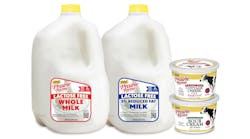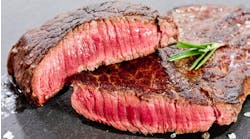Agriculture Secretary Mike Johanns announced Dec. 11 that Japan has agreed to reopen its markets to U.S. beef (see official statement below). On Dec. 12, Reuters reported that Johanns said U.S. beef shipments to Japan may resume "within the next week to 10 days." He was speaking at a briefing on issues the U.S. will raise at a meeting of the World Trade Organization in Hong Kong this week. Also on Dec. 12, USDA's Animal and Plant Health Inspection Service (APHIS) noted that the U.S. is returning the favor by amending regulations that have prohibited U.S. imports of beef from Japan (see USDA's announcement below).December 11, 2005 statement by Agriculture Secretary Mike Johanns
regarding the opening of the Japanese market to U.S. beef (source: USDA)"I'm very pleased to announce that the Japanese market is now open to U.S. beef products. Resuming beef trade with Japan is great news for American producers and Japanese consumers, as well as an important step toward normalized trade based on scientifically sound, internationally recognized standards. "Reopening the Japanese market to U.S. beef has been a top priority for me since becoming Secretary, and I want to thank the many people and organizations who have been instrumental in this success. First and foremost, my thanks to President Bush for being personally and directly engaged in this effort. I want to thank my colleagues in the President's cabinet, Secretaries Rice, Snow, Gutierrez and Ambassador Portman, as well as Ambassadors Baker and Schieffer, for making this issue a centerpiece of their discussions with Japan. I also extend my thanks to Chairmen Goodlatte and Chambliss, the entire American meat industry, and all of the USDA staff involved with the many meetings, site visits, reports and other consultations with Japan's food safety officials to confirm the safety of U.S. beef. "Japan's action today provides sets an excellent example for other countries in Asia whose markets remain closed. Now is the time for Taiwan, South Korea, Hong Kong, China, Singapore and others to open their markets to U.S. beef. I urge all countries to take a science-based approach and adopt OIE standards for allowing beef trade. Building bridges of understanding and collaboration between nations is an important part of ensuring food safety. American producers are proud of our safe, high-quality beef products and we greatly value the opportunity to promote the safety of our products to consumers in Japan and around the world. As I have said many times throughout this process, our goal is the resumption of normal beef trade throughout the world and we will continue to aggressively work toward that objective." Under the agreement announced today, the United States is able to export beef from cattle 20 months of age and younger to Japan. More than 94 percent of total U.S. ruminant and ruminant products, with a total export value of $1.7 billion in 2003, are now eligible for export to Japan. In 2003, the United States exported $1.4 billion worth of beef and beef products to Japan. Prior to the December 2003 discovery of the first BSE-infected cow in the United States, the U.S. exported beef and beef products to 119 countries. With the opening of Japan, 67 countries have now established trade to at least selected U.S. beef and beef products. USDA amends regulations governing the importation of whole
cuts of boneless beef from Japan (source: USDA, Dec. 12, 2005) The U.S. Department of Agriculture's Animal and Plant Health Inspection Service today announced that it is amending regulations governing the importation of meat and other edible animal products to reestablish, under certain conditions, the importation of whole cuts of boneless beef from Japan. This final rule will continue to safeguard the United States against the introduction of bovine spongiform encephalopathy (BSE). In September 2001, APHIS prohibited the importation of ruminants and most ruminant products from Japan following the confirmation of BSE in a native-born cow in that country. Recently, Japan requested that APHIS consider resuming the importation of beef from Japan to the United States. In a Federal Register notice published Aug. 18, 2005, APHIS proposed to amend the import regulations by allowing the importation of whole cuts of boneless beef from Japan under specified conditions. The regulations will be amended under this final rule. After conducting a thorough risk analysis, APHIS has determined that such beef can be safely imported to the United States from Japan under the following conditions:
regarding the opening of the Japanese market to U.S. beef (source: USDA)"I'm very pleased to announce that the Japanese market is now open to U.S. beef products. Resuming beef trade with Japan is great news for American producers and Japanese consumers, as well as an important step toward normalized trade based on scientifically sound, internationally recognized standards. "Reopening the Japanese market to U.S. beef has been a top priority for me since becoming Secretary, and I want to thank the many people and organizations who have been instrumental in this success. First and foremost, my thanks to President Bush for being personally and directly engaged in this effort. I want to thank my colleagues in the President's cabinet, Secretaries Rice, Snow, Gutierrez and Ambassador Portman, as well as Ambassadors Baker and Schieffer, for making this issue a centerpiece of their discussions with Japan. I also extend my thanks to Chairmen Goodlatte and Chambliss, the entire American meat industry, and all of the USDA staff involved with the many meetings, site visits, reports and other consultations with Japan's food safety officials to confirm the safety of U.S. beef. "Japan's action today provides sets an excellent example for other countries in Asia whose markets remain closed. Now is the time for Taiwan, South Korea, Hong Kong, China, Singapore and others to open their markets to U.S. beef. I urge all countries to take a science-based approach and adopt OIE standards for allowing beef trade. Building bridges of understanding and collaboration between nations is an important part of ensuring food safety. American producers are proud of our safe, high-quality beef products and we greatly value the opportunity to promote the safety of our products to consumers in Japan and around the world. As I have said many times throughout this process, our goal is the resumption of normal beef trade throughout the world and we will continue to aggressively work toward that objective." Under the agreement announced today, the United States is able to export beef from cattle 20 months of age and younger to Japan. More than 94 percent of total U.S. ruminant and ruminant products, with a total export value of $1.7 billion in 2003, are now eligible for export to Japan. In 2003, the United States exported $1.4 billion worth of beef and beef products to Japan. Prior to the December 2003 discovery of the first BSE-infected cow in the United States, the U.S. exported beef and beef products to 119 countries. With the opening of Japan, 67 countries have now established trade to at least selected U.S. beef and beef products. USDA amends regulations governing the importation of whole
cuts of boneless beef from Japan (source: USDA, Dec. 12, 2005) The U.S. Department of Agriculture's Animal and Plant Health Inspection Service today announced that it is amending regulations governing the importation of meat and other edible animal products to reestablish, under certain conditions, the importation of whole cuts of boneless beef from Japan. This final rule will continue to safeguard the United States against the introduction of bovine spongiform encephalopathy (BSE). In September 2001, APHIS prohibited the importation of ruminants and most ruminant products from Japan following the confirmation of BSE in a native-born cow in that country. Recently, Japan requested that APHIS consider resuming the importation of beef from Japan to the United States. In a Federal Register notice published Aug. 18, 2005, APHIS proposed to amend the import regulations by allowing the importation of whole cuts of boneless beef from Japan under specified conditions. The regulations will be amended under this final rule. After conducting a thorough risk analysis, APHIS has determined that such beef can be safely imported to the United States from Japan under the following conditions:
- The beef is prepared in an establishment that is eligible to have its products imported to the United States under the Federal Meat Inspection Act. This includes provisions that specified-risk materials (SRMs) must be removed under appropriate conditions and it also prohibits the use of air-injection stunning devices.
- The beef must be derived from cattle that are not subjected to a pithing process at slaughter.
- The mitigation measures must be certified on an original certificate issued by an authorized veterinary official of the Japanese government.

